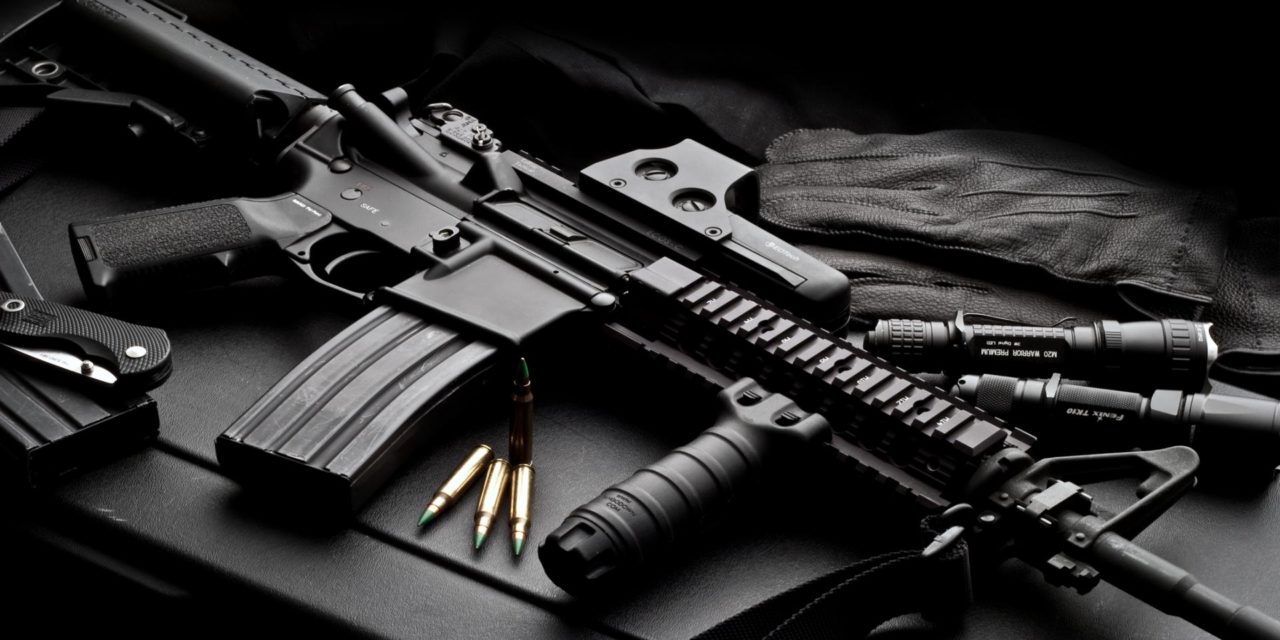Since the school shooting massacre in Parkland, Fla., congressional Republicans have brushed aside calls for a ban on assault weapons and instead focused on the many warning signs displayed by the alleged Florida killer that were largely ignored by local police and the FBI.
Gun rights advocates say law enforcement action should have been taken to prevent the mass murder. The accused, 19-year-old Nikolas Cruz, displayed all the warning signs: expelled from school, fighting with classmates, a fascination with weapons and hurting animals, disturbing images and comments posted on social media, previous mental health treatment, threatening at least one teen, and showing signs of depression. Some who knew him had bluntly predicted that he would be a school shooter someday.
But Florida – and federal law – does not have a “red flag” gun control provision that could have allowed the courts to confiscate Cruz’s 10 weapons.
He was able to legally own the AR-15 assault rifle he allegedly used to carry out the killings at his former high school, though his mother, classmates and teachers had described him as dangerous. Repeated police visits to his home – with reports varying from 23 to 45 – resulted in no preventive action.
Given that disturbing timeline leading up to the Valentine’s Day massacre, some Republicans on Capitol Hill seemingly are taking steps toward a federal red flag-style law of some kind. Only five states have such a statute — Connecticut, Indiana, Oregon, Washington and California — but they have been proposed in 18 other states, including Michigan. These restrictions remain controversial across the nation, with gun rights groups, including the National Rifle Association, in opposition.
Some members of Congress see a potential dovetailing of tougher background checks and a red flag system as part of a reform package.
Trump’s stunning statement
“We shouldn’t be banning guns for law-abiding citizens. We should be focusing on making sure that citizens who should not get guns in the first place don’t get those guns,” House Speaker Paul Ryan said on Tuesday.
Ryan said he wants tougher gun rules for those suffering from mental health problems and more extensive background checks, similar to a bill already passed in the House.
GOP Sen. Marco Rubio of Florida, facing intense criticism in his home state due to the campaign support he has received from the NRA, said earlier this week that state legislators should “absolutely” consider a red flag law.
Watch for many Republican members of Congress to move toward tentative support of a federal law after today’s stunning session at the White House, with President Trump ridiculing GOP lawmakers who he said are “petrified” of the NRA.
Regarding police not acting on the many red flags raised about the alleged Parkland shooter, the Republican president said: “I think they should have taken (his guns) away, whether they had the right or not.”
That ineloquent statement was apparently meant as a call for a national red flag law.
Under a red flag system, law enforcement or family members can petition a court for a “gun violence restraining order,” also known as an “extreme risk protection order,” against a gun owner who has displayed mentally unstable or dangerous behavior.
The court can order the person’s guns seized – and a ban placed on purchasing new firearms — through a judicial order. The law acts as a temporary timeout, so someone in psychological distress or in a tailspin of violent behavior can get counseling while their fitness to possess a gun is evaluated, according to the Giffords Law Center. An appeal can be requested and, after one year, a hearing is mandated to determine if the person’s guns can be safely returned.
These provisions are designed to prevent mass shootings by giving police the ability to take guns out of the hands of people who present a threat before anyone is harmed — rather than after.
Critics say the restrictions violate the Second Amendment and allow the seizure of firearms without initial legal protections or a thorough mental evaluation for the gun owner.
Michigan may move forward
Sen. Mike Lee, R-Utah, is currently holding up debate on background checks legislation over concerns it could encourage government agencies to red flag someone who has not committed a crime and without notice or a proper hearing.
The NRA has said red flag laws enable courts to take away a person’s gun rights “based on third-party allegations and evidentiary standards” that are weaker than what’s required in criminal proceedings.
Bridge Magazine reported last week that in Lansing the Republican chairman of the state House Judiciary Committee has agreed to take a look at pending red flag legislation, though he did not commit to holding a legislative hearing on the bills.
The Democratic legislation allows a protection order to be granted if a judge decides “there is reasonable cause to believe that the defendant poses a significant risk of personal injury to himself or herself or others by possessing a firearm.” That could include evidence showing someone who was red flagged had threatened or previously inflicted injury on themselves or other people.
One study of mass shootings from 2009 to 2016 found that 42 percent of the attackers had shown warning signs of violent behavior.
Other research from 1999 to 2013 found that Connecticut’s red flag law was actually more effective at preventing suicides than homicides. During that period, police had issued 762 “risk warrants,” seizing an average of seven firearms in each instance.





